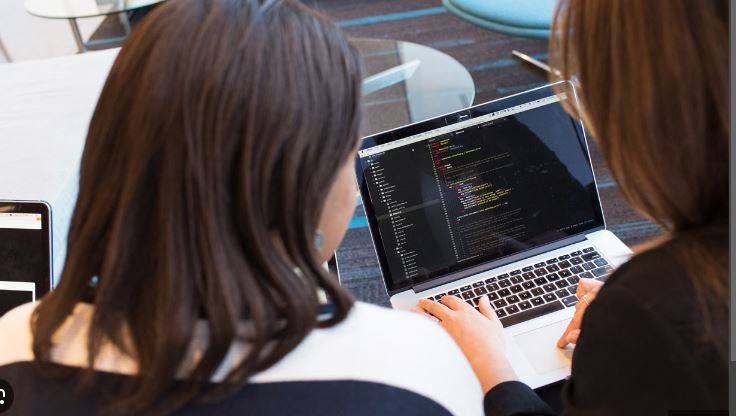Why learning to code is a crucial skill for the future becomes increasingly evident as technology continues to advance rapidly. Coding skills are no longer reserved for tech professionals alone; they have become essential in various fields. Learning to code equips individuals with problem-solving abilities, enhances career opportunities, and fosters innovation. This post explains why coding is a crucial skill and how it benefits individuals and society.

Enhancing Problem-Solving Abilities
Learning to code is a crucial skill for the future because it enhances problem-solving abilities. Coding encourages logical thinking and systematic approaches to challenges.
Firstly, programming teaches critical thinking. Coders must break down complex problems into smaller, manageable tasks, fostering a structured approach to solving issues. For instance, developing a software application involves identifying user requirements, designing solutions, and debugging code, all of which require analytical skills.
Secondly, coding promotes creativity. Solving programming problems often requires innovative solutions and creative thinking. By experimenting with different approaches, individuals develop their ability to think outside the box and devise effective solutions to diverse challenges.
Thirdly, coding involves iterative learning. Programmers continuously test and refine their code, learning from mistakes and improving their solutions over time. This iterative process builds resilience and adaptability, crucial traits for tackling complex problems in any field.
Expanding Career Opportunities
Learning to code is a crucial skill for the future as it opens up numerous career opportunities. Coding skills are highly valued across various industries, not just in technology.
Firstly, technology-related jobs are on the rise. Roles such as software developers, data analysts, and cybersecurity experts require coding skills. As technology advances, the demand for skilled professionals in these areas continues to grow, making coding a valuable asset for career advancement.
Secondly, coding skills enhance job versatility. Many industries, including finance, healthcare, and education, seek professionals who understand programming. For example, data analysts in finance use coding to interpret financial data, while healthcare professionals may use coding to develop health management software.
Thirdly, coding offers entrepreneurial opportunities. Individuals with coding skills can create their own tech startups or develop software solutions. By learning to code, aspiring entrepreneurs gain the ability to turn their ideas into reality and drive innovation in various sectors.
Fostering Innovation
Learning to code is a crucial skill for the future because it fosters innovation. Coding empowers individuals to develop new technologies and solutions.
Firstly, coding enables software development. Programmers create applications, websites, and tools that address specific needs and improve user experiences. For instance, coding has led to the development of apps that simplify everyday tasks, such as budgeting or fitness tracking.
Secondly, coding drives technological advancements. Innovations in fields like artificial intelligence, machine learning, and robotics rely on coding. By understanding programming, individuals contribute to cutting-edge technologies and push the boundaries of what is possible.
Thirdly, coding supports creative projects. Artists, designers, and writers use coding to create interactive media, digital art, and new forms of expression. Coding allows creatives to explore new dimensions of their work and reach audiences in innovative ways.
Preparing for the Future
Learning to code is a crucial skill for the future as it prepares individuals for an increasingly digital world. As technology becomes more integrated into daily life, coding proficiency will become even more important.
Firstly, digital literacy is essential for navigating modern workplaces and everyday tasks. Coding knowledge enhances digital literacy, enabling individuals to understand and leverage technology effectively.
Secondly, coding supports lifelong learning. The rapidly evolving tech landscape requires continuous learning and adaptation. Coding skills provide a foundation for understanding new technologies and staying current in a dynamic environment.
Thirdly, coding contributes to digital inclusion. By learning to code, individuals from diverse backgrounds gain access to opportunities in the tech industry and beyond. Coding education promotes inclusivity and ensures that more people can participate in shaping the future of technology.
Conclusion
In conclusion, learning to code is a crucial skill for the future due to its impact on problem-solving, career opportunities, and innovation. Coding enhances analytical thinking, opens doors to diverse job prospects, and drives technological advancements. As technology continues to evolve, coding will remain an essential skill for individuals and society. Embracing coding education prepares people for the digital future and fosters creativity and inclusion in the tech world.
